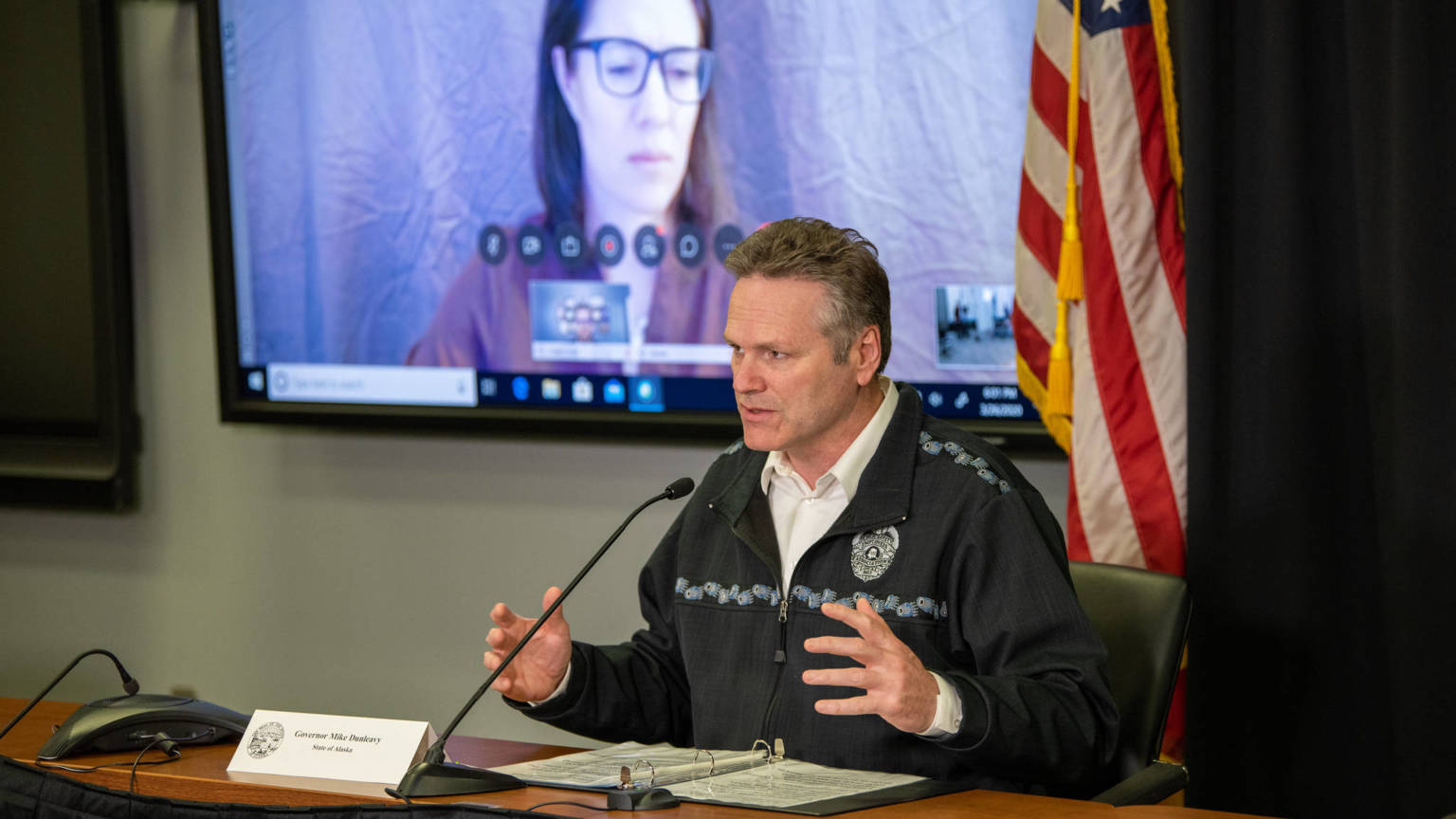
Update | 9:25 p.m.
Some Alaskans who’ve had close contact with people with COVID-19 are refusing to quarantine because they won’t get paid if they don’t go to work. And the issue is raising concern among state and local public health leaders.
Anchorage Environmental Health Services Division Manager Christy Lawton told legislators on Tuesday that residents’ financial needs are affecting their willingness to comply with public health recommendations.
“There’s also individuals we contact that for the same reasons, are resistant to go get tested,” she said. “Because not knowing is better in their minds, because they don’t have to reveal they’re positive and potentially be told not to come to work, particularly for many in our community that don’t have job where they’re going to get paid if they don’t show up, or they’re not able to telecommute.”
At a House Health and Social Services Committee meeting, Lawton said the issue is occurring at a time when contact tracing is more difficult.
“With the widespread community spread that’s happening now, I think contact tracing efforts are just harder because it’s so insidious and so vast,” she said.
Lawton encouraged committee members to find ways to provide economic incentives to people to comply with health mandates and to advocate for financial support at all levels of government.
State officials said in a news briefing on Wednesday that isolation for people with the virus — and quarantine for the people they’ve been in close contact with — is difficult for multiple reasons.
Alaska Chief Medical Officer Dr. Anne Zink said the coronavirus’s long incubation period makes it challenging. It can take between two and 14 days for a person with the virus to show symptoms.
“It’s hard for families. It’s hard for workers. It’s hard for kids,” she said.
Zink said all public health workers can do is provide people with data about the disease and ask for them to isolate and quarantine.
State Epidemiologist Dr. Joe McLaughlin said job-related pressures are one of several reasons why people don’t want to comply with contact tracing, along with issues related to schooling and general fatigue with responding to COVID-19. But he said contact-tracing is one of the state’s most important tools to slow the virus’ spread.
“We’re seeing a number of people who are not interested in participating in contact tracing,” McLaughlin said. “My nursing staff frequently reports getting hung up on by people that they’re trying to, you know, notify.”
McLaughlin added that people who test positive should inform their own close contacts.
Gov. Mike Dunleavy said he recently became aware of the issue of Alaskans not complying with contact tracing due to work pressures. He said his office will be looking at how widespread and problematic the issue is, and will examine whether there’s anything the state can do to address it.
One of the first federal laws enacted in response to the epidemic in March — the Families First Coronavirus Response Act — requires some employers to provide up to two weeks of paid sick leave to people who must quarantine as a result of the pandemic. But the law doesn’t cover all workers. And it expires at the end of this year.
Dunleavy took questions from reporters in a news briefing on Wednesday for the first time since Sept. 1
Original story
Gov. Mike Dunleavy is holding a press conference at 5 p.m. today to talk about the state’s response to the COVID-19 pandemic. He’ll be joined by Department of Health and Social Services commissioner Adam Crum, the state’s Chief Medical Officer Dr. Anne Zink, Chief Epidemiologist Dr. Joe McLaughlin and Public Health Director Heidi Hedberg.
In the seven months that the COVID-19 pandemic has spread through Alaska, things have changed rapidly.
There have been 12,644 cases of COVID-19 among Alaska residents and people who are visiting in the state; 68 Alaskans have died. The state has had outbreaks in fish plants, homeless shelters, the Anchorage Pioneer Home and jails. Four members of Dunleavy’s administration have tested positive recently. In Juneau, 17% of businesses say they’re in danger of closing.
And, while the virus has yet to take off in Alaska as it has in the Lower 48, it is spreading rapidly. There have been more than 100 new cases of COVID-19 identified each day for nearly a month. Nearly every region in the state is at a high alert level.
It has been more than a month since Dunleavy has held a press conference.
Generally, during the appearances and at town hall meetings, members of Dunleavy’s administration have updates on the number of people in the state with confirmed cases, announced public health mandates and explained the administration’s strategy and rationale.
They’ve imposed several public health mandates that have reshaped daily life across Alaska to combat the spread of the virus. Those mandates and other Alaska-specific COVID-19 resources and information are available at coronavirus.alaska.gov.
The press conference can be streamed live here and on the Governor’s Facebook page.
"Give" - Google News
October 22, 2020 at 07:49AM
https://ift.tt/34gj99k
Watch: Gov. Dunleavy and state health officials to give update on COVID-19 - KTOO
"Give" - Google News
https://ift.tt/2YqGX80
https://ift.tt/2YquBwx
Bagikan Berita Ini














0 Response to "Watch: Gov. Dunleavy and state health officials to give update on COVID-19 - KTOO"
Post a Comment